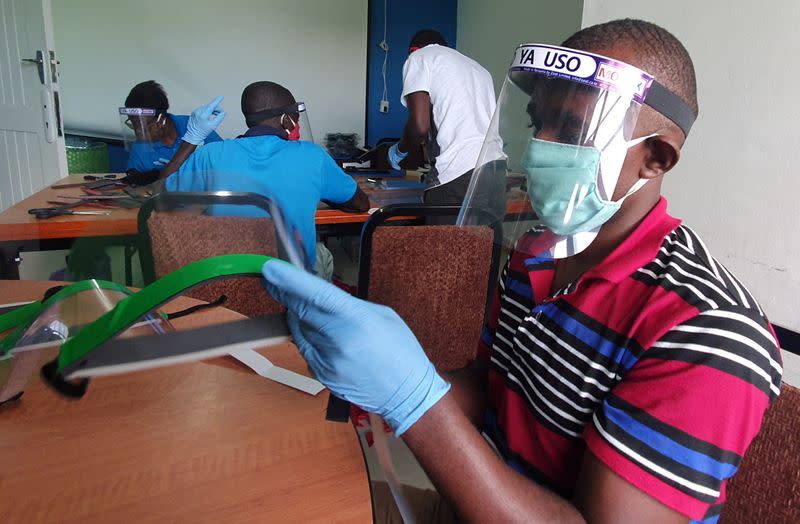NAIROBI (Reuters) – The United States urged Tanzania, skeptical of the vaccine, on Friday to review the evidence on the drugs, saying they work and are one of the tools to combat the COVID-19 pandemic.
United States Ambassador to Tanzania Don Wright said he was excited that officials had recently recognized COVID-19 as a public health priority and called on Tanzanians to take basic precautions to prevent the virus.
In a statement, he urged the government to start sharing test and case data “to see if response measures are having the intended impact,” and said the government should employ vaccines as an anti-coronavirus tool.
“There is no doubt that a mass immunization campaign will save lives,” he said. “I urge the Government of Tanzania to summon its health experts and review the evidence on vaccines.”
President John Magufuli has been one of the world’s most skeptical leaders about efforts to combat the pandemic. He also cast doubt on the effectiveness of the COVID-19 vaccines, saying last month that “they are not good. If they were, the white man would have brought vaccines for HIV / AIDS”.
His government said it has no plans to import vaccines.
Last week, the death of a senior politician who had tested positive for COVID-19 raised concerns about a hidden epidemic spreading across the East African country.
On Sunday, the head of the World Health Organization, Tedros Adhanom Ghebreyesus, urged Tanzania to step up public health measures, prepare to distribute vaccines and start reporting coronavirus cases and sharing data.
The government stopped reporting coronavirus statistics last May, when it registered 509 cases and 21 deaths.
On February 10, the US embassy said that Tanzania was experiencing an increase in COVID-19 cases and that its health facilities could be quickly overwhelmed.
On Wednesday, the health minister implored citizens to take precautions against COVID-19, including wearing masks, avoiding unnecessary public meetings and washing hands.
(Reporting by the Nairobi newsroom; Frances Kerry edition)
